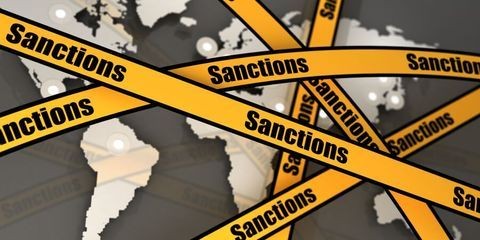Private Right of Action under the FCPA? Risks increase as litigants increasingly use foreign bribery allegations as predicate acts in U.S. civil tort cases.
Client Alert | 2 min read | 10.29.08
For at least the third time this year, a civil case has been brought in U.S. federal court alleging conduct that, if proven, would likely constitute a violation of the Foreign Corrupt Practices Act.
Last week, Supreme Fuels Trading FZE, a company incorporated and headquartered in the UAE, filed a lawsuit in federal district court in Miami against, among others, prominent political fundraiser Harry Sargeant III and his company, International Oil Trading Company (IOTC). The lawsuit alleges that Sargeant and others participated in a conspiracy to bribe Jordanian government officials to obtain necessary documents that would ensure the receipt of over $1 billion in U.S. government contracts for the supply of fuels to the U.S. military in Iraq.
According to the Complaint, the U.S. military fuel contracts required eligible bidders to obtain a "Letter of Administration" or "LOA" from the Jordanian government permitting the transport of fuels across Jordan into Iraq. Supreme Fuels claims that it presented more favorable bids than Sargeant and his partners, but that the defendants paid tens of millions of dollars to ensure that they were the exclusive recipients of the required LOAs.
Supreme Fuels claims that the conspiracy netted IOTC more than $210 million in profits, and Sargeant himself more than $70 million. Supreme Fuels complains further that the scheme cost U.S. taxpayers more then $180 million in overpayments.
There is no private right of action under the FCPA, but companies, and even foreign governments, have taken to U.S. courts seeking damages for the same conduct under the federal Racketeering Influenced and Corrupt Organizations Act ("RICO") as well as state and federal antitrust, consumer protection, and tort laws. With the added exposure of civil lawsuits, companies accused of foreign bribery not only face the prospect of multi-million dollar fines or settlements with the U.S. Department of Justice and Securities and Exchange Commission, but also treble damages under RICO and other civil remedies.
With U.S. and other governments continuing to expand their investigations of foreign bribery, companies are learning the hard way the importance of establishing and maintaining an effective global anti-corruption compliance and training program. With civil plaintiffs now joining the ranks of those "prosecuting" foreign bribery, the stakes have only gotten higher.
Insights
Client Alert | 14 min read | 05.03.24
On April 24, 2024, President Biden signed into law the National Security Supplemental fiscal package, which includes significant new sanctions and export controls authorities. Although the U.S. foreign aid commitments for Ukraine, Israel, and Taiwan headline the new law, it also (1) expands the statute of limitations for U.S. sanctions violations; (2) includes new authorities for the President to coordinate sanctions efforts with the European Union and the United Kingdom; (3) expands sanctions and export controls on Iran (including some targeted at Chinese financial institutions); and (4) includes new sanctions authorities targeting terror groups.
Client Alert | 3 min read | 05.03.24
EEOC’s New “Enforcement Guidance on Harassment in the Workplace” Hits Hot-Button Issues
Client Alert | 11 min read | 05.03.24
FDA Moves Forward on Laboratory Developed Tests while Stakeholders and Congress Weigh Next Steps
Client Alert | 1 min read | 05.03.24





